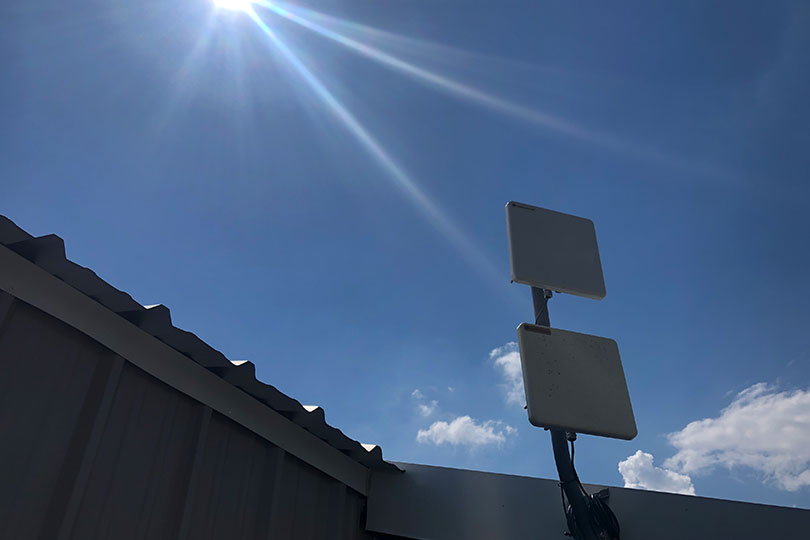By Jennifer Dorsett
Field Editor
It’s no secret that when it comes to broadband access, rural residents are far behind their urban counterparts. According to the American Farm Bureau Federation, nearly 40 percent of rural Americans lack access to high-speed internet connections.
The Texas Legislature and Gov. Greg Abbott have been working to find solutions and improve access since a bill was passed last May creating the governor’s Broadband Development Council.
Helping in those efforts is South Texas cattle rancher and Texas Farm Bureau (TFB) member Lindsey Lee. She was appointed by Abbott in January as the council’s agricultural organization advocate.
“Agriculture is definitely my passion,” Lee, who lives on her family’s ranch in rural Jackson County, said. “I’m very honored and excited to support the governor on this initiative.”
COVID-19 upended plans to meet earlier in the year, so the council only recently had a first virtual meeting, where Lee was assigned to a subcommittee identifying the barriers to commercial and residential broadband in underserved areas.
It’s a topic Lee is eager to share more about with other council members who may not fully understand rural circumstances.
“In addition to working on the family ranch, I’m a farm and ranch realtor, and there are several areas where I have listings and sell properties that there’s minimal internet service,” she said. “Even where I live, my service is not all that great, so I understand the issue very, very well.”
While there is an overall need for better broadband access across the state, it’s especially evident in rural areas, Lee said. Dependable high-speed access can deliver telemedicine in areas that lack healthcare professionals, career opportunities and enhanced educational resources.
And while Lee has long been aware of the faults and frustrations of rural internet, the coronavirus pandemic has underscored the need for better access in her own life.
The real estate office where Lee works was closed at the beginning of the pandemic, but she continued to commute to town to work because her home internet speed proved incapable of handling the increased workload.
“For the first few weeks, we completely shut down our office,” she said. “Unless it was a contract signing, we didn’t allow people in the building at all. We were all trying to work from home, but I spent more time in the office than my coworkers because my internet access is so terrible.”
Access to rural broadband is critical for farmers, ranchers and rural communities to be more efficient, economical and responsive to market needs.
“I’m very much looking forward to tackling these issues and seeing what the council can do to increase broadband access for rural Texans,” Lee said.
Ensuring reliable access to broadband throughout rural America is a priority for Farm Bureau.
Click here to learn more about Farm Bureau’s efforts on rural broadband.


I sure hope this can happen. I have never had good WIFY in Berclair. I have tried several different providers. It is a shame that a signal for TV on Dish but the internet was not good.
Rural telehealth is a challenge, we need more reliable internet in all our rural areas. Telehealth will continue to be the norm in our nation, it is safer and convenient…especially for the elderly. It is convenient for rural families, working parents and all shift workers.
For our ranchers to market their cattle, buy and sell via internet, if they opt for that, is convenient. The availability of sufficient internet service to rural families for access to feeders, sale barns and/or other ranches is a critical element to ranching. We run 600+ cows over many acres and don’t have cellphone access in some of the areas to video and send out to market our cattle, much less communicate with each other via cellphone.
Access to internet, for all ages, for completing school work, whether grade school or college is sub standard for rural communities and always has been. Continuing education via internet is almost impossible in most areas. As a RN, I would like to work from home when I retire, consulting, auditing, etc, but work from home jobs are not available without reliable internet coverage to transmit for speed and safety of information transmitted.
Internet access has always been important but we as rural Americans, have always had the attitude to just accept the best we can get and manage…..thanks for allowing me to input!